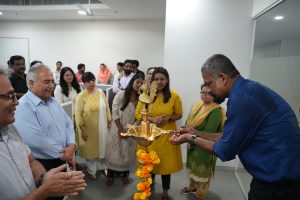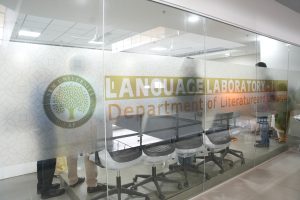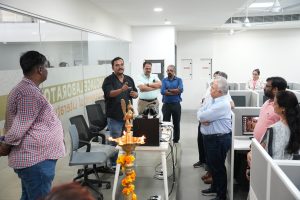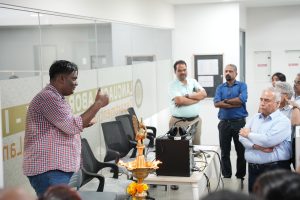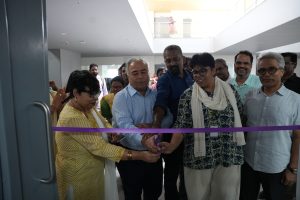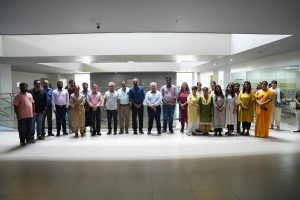- Language Lab to Boost Student Communication Skills October 4, 2024
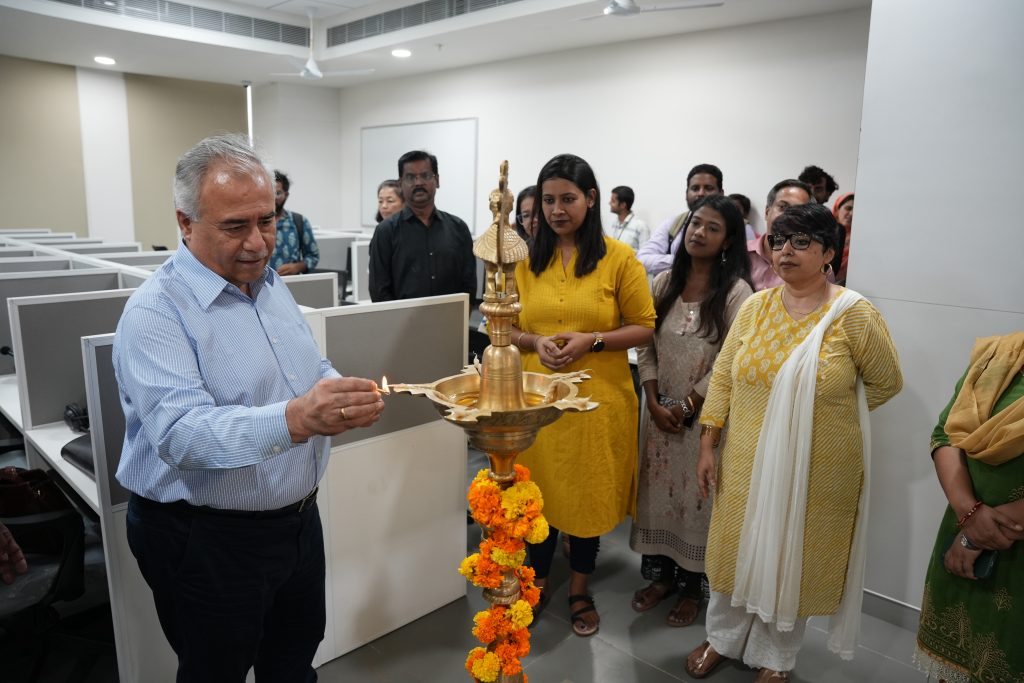 The Department of Literature and Languages at SRM University-AP celebrated the launch of its Language Lab, a state-of-the-art, 70-seater facility designed to enhance the Listening, Speaking, Reading, and Writing (LSRW) skills of its students.
The Department of Literature and Languages at SRM University-AP celebrated the launch of its Language Lab, a state-of-the-art, 70-seater facility designed to enhance the Listening, Speaking, Reading, and Writing (LSRW) skills of its students.The inauguration was witnessed and officiated by the honourable Vice Chancellor, Prof. Manoj K Arora, along with Prof. Vishnupad, Dean- ESLA; Prof. C V Tomy, Dean-SEAS, Dr Vinayak Kalluri, Dean-Academic Affairs, Ms Suma N, CFAO; Dr Sayantan Thakur, Assistant Professor and Head; Dr Karthik Rajendran; Dr Srabani Basu, other faculty members, research scholars and students.
The laboratory, valued at 10 million rupees, is equipped with Sanako and Lanquill software, providing students with access to advanced resources. During the event, Vice Chancellor Prof. Manoj K Arora emphasised the value of communication he stated “Communication is an essential skill. With this lab, our students have a real opportunity to build those skills and contribute meaningfully to society.” he also voiced that, In future, the varsity will also be looking forward to opening this facility to the wider community so that more people can benefit from this resource.
Dr Thakur and Dr Amlan Baisya, Assistant Professors at the university, provided insights into the laboratory’s cutting-edge software and technology. They explained how these tools can significantly enhance the learning experience, making language acquisition more interactive and engaging. The faculty expressed their excitement about the opportunities this facility will create for both students and instructors alike.
Prof. Arora took a moment to commend the Department of Literature and Languages and the Directorate of Information Technology and Knowledge Management (ITKM) for their commitment to advancing education through innovative resources. He underscored the bright future ahead, not only for students but for the entire university community, as they leverage this new laboratory to improve communication skills that are vital in both academic and professional settings.
Continue reading → - Dr Sayantan’s Research Paper on Overcoming the Digital Divide October 4, 2024
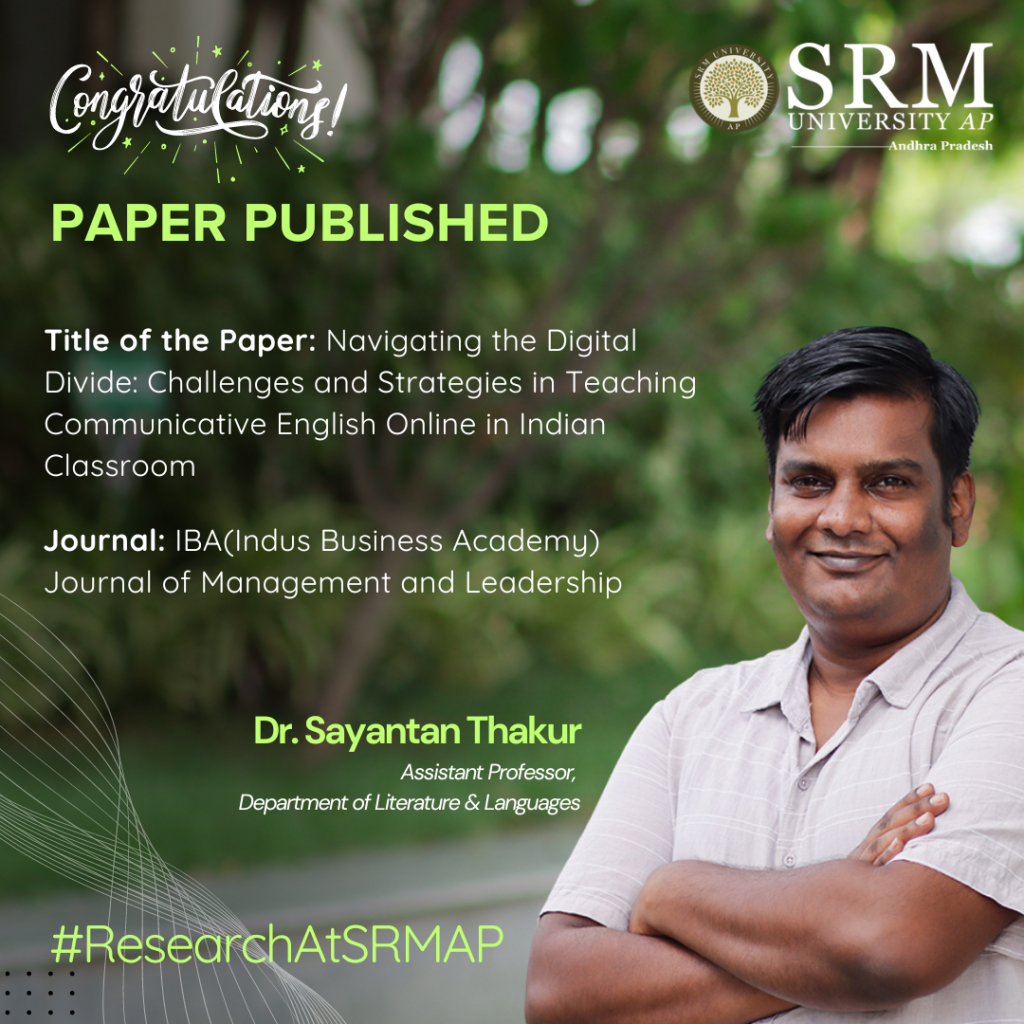
In the context of online English education in India, the “digital divide” has emerged as a significant obstacle, especially for students from rural or underprivileged areas. Dr Sayantan Thakur, Assistant Professor at the Department of Literature and Languages in his article introduces a research study titled “Navigating the Digital Divide: Challenges and Strategies in Teaching Communicative English Online in Indian Classrooms,” which aims to address the unequal access to online learning tools.
Abstract
The advent of online learning platforms is providing new opportunities for English language learning (ELL) in India. However, there is a significant challenge posed by the digital divide – the gap in accessing technology. This study investigates what causes the digital divide in internet ELL classrooms such as infrastructure limitations, device ownership and usage, and digital literacy skills; and how they affect student engagement, development of communication skills, and overall learning experiences. It suggests ways to bridge this gap which include government policies on infrastructure development; affordable tech solutions like mobile apps; teaching programs that enhance digital literacy among learners; support for teachers involved in web-based pedagogy. Through these recommendations, education stakeholders can create an inclusive cyberspace for all students where their communication abilities will be nurtured throughout different parts of India.
The Practical Implementation
The practical implementation of your research on “Navigating the Digital Divide: Challenges and Strategies in Teaching Communicative English Online in Indian Classrooms” has far-reaching social implications. By addressing the digital divide, your work can help level the playing field in education, especially for students from underprivileged backgrounds.
Improved Access to Education: Implementing strategies like infrastructure development, affordable mobile-based learning tools, and digital literacy programmes can provide more students, especially in rural and low-income areas, access to online English learning resources. This improves their chances of acquiring essential communication skills, opening doors to better job opportunities.
Empowering Teachers: Equipping teachers with digital tools and training enables them to deliver more effective online lessons, increasing student engagement and success rates.
Reducing Inequality: Bridging the technology gap can reduce educational disparities between urban and rural areas, promoting social mobility and reducing the long-term impacts of inequality.
Building a Digitally Literate Society: Enhancing digital literacy among students and teachers fosters a society better prepared for the demands of the modern workforce, ultimately contributing to economic growth and social inclusion.
Future Research Plans
- Regional Literature in Translation
- Tantric Tradition and Eastern Indian Literature
- Folk Music of Bengal
- Indian Philosophy, Aesthetics & Literature


